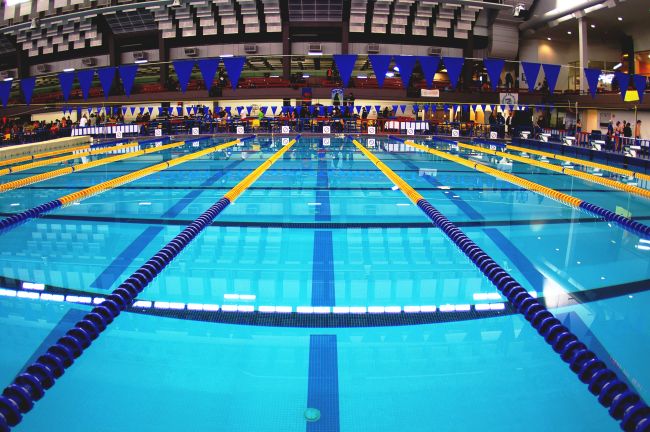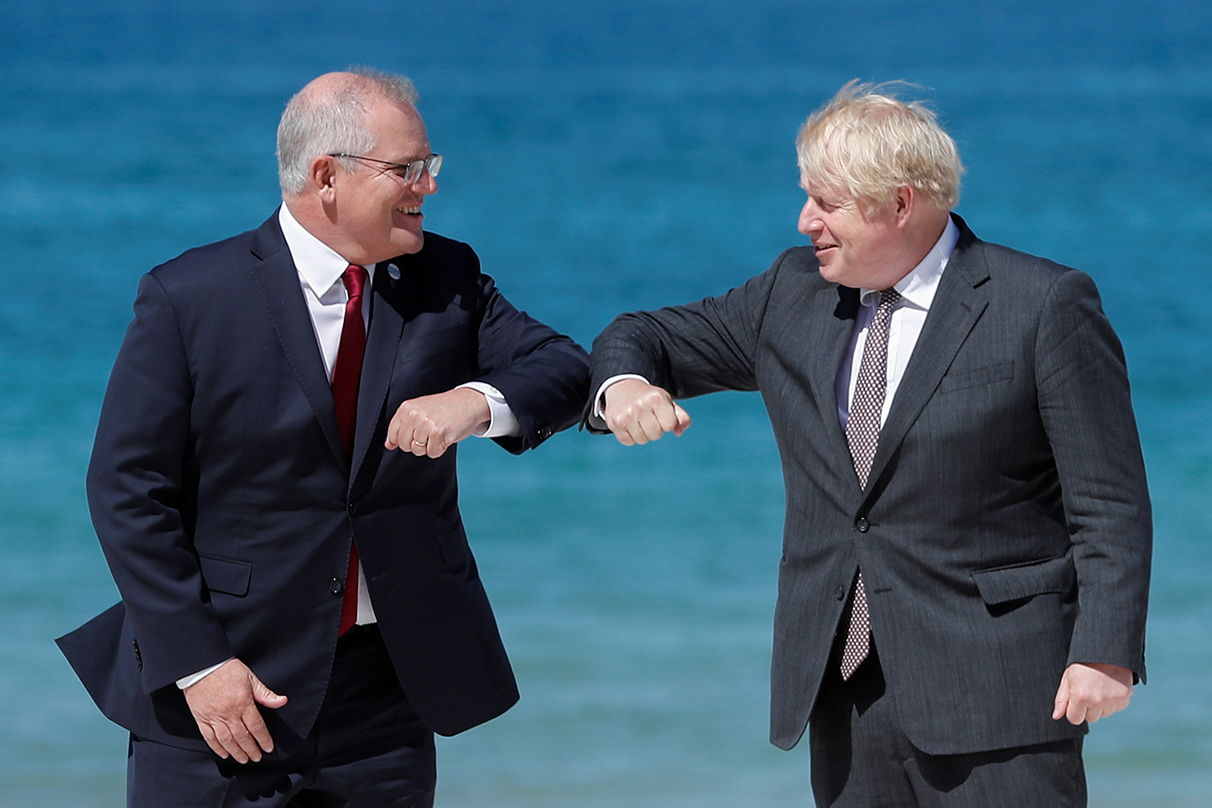Selected
- Details
- Written by Grant Broadcasters
- Category: Selected
- Hits: 275

One in four Australian adults have now received at least one dose of the coronavirus vaccine, with more than six million jabs administered across the country.
But there is more trouble on the horizon and several high profile figures have issued stark warnings about the sluggish pace of the vaccine rollout.
NSW has recorded a new local case of coronavirus after a Bondi man in his 60s tested positive.
The man has not been overseas recently but has worked as a driver, transporting international flight crews.
The source of infection is unknown.
Health authorities are now scrambling to retrace his steps across Sydney's east and north to identify exposure sites.
State and federal health officials have convened a meeting to discuss the latest case.
NSW officials are also investigating a potential hotel quarantine breach after guests in adjacent rooms fell ill.
In Victoria, more restrictions are being eased across Melbourne as lockdown rules are slowly lifted.
But hundreds of people in a Southbank apartment complex have been forced into a fresh 14-day lockdown after several residents tested positive.
Health Minister Greg Hunt is upbeat about the vaccine rollout, with another 152,075 people inoculated in the past 24 hours.
It was the second highest day so far in the vaccine rollout, with strong figures at state centres and GP clinics.
But not everybody shares Mr Hunt's optimism.
Former finance minister Mathias Cormann, who now heads a major international economic body, declared the vaccine rollout was a race.
This statement puts him directly at odds with his former cabinet colleagues including Prime Minister Scott Morrison.
But Mr Cormann said the global vaccination effort had real economic consequences.
"The most important measure to optimise the recovery at this point in time, the economic recovery, is to have an effective and timely globally comprehensive rollout of the vaccine everywhere," Mr Cormann told Sky News in Paris.
"There is a race in getting a sufficient proportion of the global population vaccinated and the risk of further variants emerging that may be immune to the vaccine."
Mr Cormann said the vaccine rollout was clearly accelerating in Australia, particularly in cities gripped by fresh outbreaks and high infection rates.
"From what I'm seeing and what I'm reading there is rapid catch-up in terms of the level of vaccinations in Australia and that is a good thing," he said.
Fair Work Commission president Iain Ross also raised the vaccine rollout when handing down a decision on the minimum wage.
He said while the economic recovery was well underway, downside risks remained.
"In particular, the risks of domestic outbreaks and of ongoing disruptions to other major economies. The pace of the vaccine rollout also remains a risk," Justice Ross said.
Almost 95 per cent of aged care workers across Australia have been fully protected with both doses of the vaccine.
Aged Care Minister Richard Colbeck played down reports some aged care workers in Victoria were yet to receive their first jab.
He has spoken to Victorian Health Minister Martin Foley, who said the reports were not correct.
© AAP 2021
Image Credit: U.S. Secretary of Defense, CC BY 2.0 <https://creativecommons.org/licenses/by/2.0>, via Wikimedia Commons
- Details
- Written by Grant Broadcasters
- Category: Selected
- Hits: 282

Telstra has doubled the number of spam calls it blocks in just four months, with its monthly tally now averaging around 13 million blocked calls.
The crackdown on such calls is part of Telstra's "Cleaner Pipes" initiative.
Four months ago the country's biggest telecommunications provider blocked around 6.5 million suspected and suspicious spam calls.
Phone scams have already cost Australians $25 million so far this year, which Scamwatch estimates is on track to surpass last year's $48 million lost to scam callers.
Some of the most common scam calls are one-ring or 'wangiri' scams and callers using spoofed numbers (overseas numbers which appear as local numbers) to pretend they represent legitimate services like the Australian Taxation Office or Telstra itself.
By phone is the most common way scammers target victims and the most successful in terms of financial loss, according to the Australian Competition and Consumer Commission.
Almost half of scam victims in 2020 were contacted by phone, 22 per cent by email, 15 per cent by text message and almost 11 per cent by social networking and other internet-based avenues, the commission reported in June.
Telstra said in a statement on Tuesday its technology couldn't stop scammers entirely.
"Customers need to stay vigilant and exercise a healthy scepticism about incoming calls."
The Australian Competition and Consumer Commission (ACCC) has been providing scam telephone numbers to Telstra since 2019 so the provider can investigate and find ways of blocking and tracing the calls.
Telstra can now block scam calls at scale with a platform that was built in-house.
This is part of an initiative to reduce the harm of phishing, malware, ransomware and other scams online and through voice and SMS.
© AAP 2021
Image Credit: https://pixahive.com/photo/a-girl-on-phone-call/ (free image)
- Details
- Written by Grant Broadcasters
- Category: Selected
- Hits: 263

Swimming Australia's board will soon meet as Olympic stars try to ignore a widening culture controversy in the sport.
SA's board will convene on Tuesday, a day after the governing body's ethics and integrity committee also met to discuss claims of a sexist culture in swimming.
The furore was triggered by Maddie Groves, who claimed on social media there were "misogynistic perverts in the sport" when announcing her withdrawal from Australia's Olympic selection trials in Adelaide.
SA will form an independent all-female panel to investigate Groves' claims and any wider issues of culture problems in elite swimming.
But Groves is still yet to respond to calls and emails from SA hierarchy.
The governing body has urged any swimmer with concerns to come forward.
Olympic gold-medal prospects Ariarne Titmus and Kaylee McKeown are among swimmers at the Adelaide trials shuttering themselves from the contoversy.
"I have heard little whispers but for me personally, I have never experienced any of that," Titmus said.
"And anything a coach says to me about my physique or race weight or whatever is for performance purposes only.
"I I have never experienced fat-shaming as such that is talked about in the media at the moment."
McKeown, who broke the women's 100m backstroke world record on Sunday night, said she was avoiding the controversy.
"I keep in my own little bubble, I don't like the whole outside distractions," she said.
"If people feel that way, that is on them and that's their opinions.
"But I just ... try and ignore any shame comments or anything like that - no negativity."
SA chief executive Alex Baumann has said the independent panel would soon be formed to investigate any claims of abuse.
Asked on Sunday if the nation's elite swim program had systemic problems regarding treatment of female swimmers, he replied: "I don't think we do.
"But this is what we are setting up to really try to find, so we're setting up this panel to exactly take a look at that."
SA had no record of any previous complaint from Groves.
Groves last November posted on Twitter: "I definitely made a complaint a few years ago about a person that works at swimming making me feel uncomfortable the way they stare at me in my togs".
Groves, on Instagram on Wednesday, announced her withdrawal from the trials.
The dual silver medallist from the 2016 Olympics went further on Twitter on Thursday, posting: "Let this be a lesson to all misogynistic perverts in sport and their boot lickers.
"You can no longer exploit young women and girls, body shame or medically gaslight ... Time's UP."
© AAP 2021
Image Credit: Xander from Yellowknife, NT, Canada, CC BY 2.0 <https://creativecommons.org/licenses/by/2.0>, via Wikimedia Commons
- Details
- Written by Grant Broadcasters
- Category: Selected
- Hits: 269

Scott Morrison will announce an in-principle agreement towards an Australia-UK free trade deal after meeting with Boris Johnson to finalise the details.
The pair worked through outstanding issues over dinner at 10 Downing Street overnight.
"Their agreement is a win for jobs, businesses, free trade and highlights what two liberal democracies can achieve while working together," a spokesman for the prime minister told AAP.
"Both PMs will make a formal announcement on Tuesday morning in London and release further information."
The deal will pave the way for more Australians to live and work in Britain and offer exporters more market options.
Ahead of the formal announcement, the prime minister practised his free trade pitch before an audience of business leaders in London.
"As the United Kingdom moves into a completely new generation of their trading relationships with the world, who better to start that journey with than Australia?" Mr Morrison said.
He described the effect of the UK joining the European common market in the 1970s as a devastating blow to Australian producers.
"The Brexit that has occurred is an opportunity for us to pick up where we left off all those many years ago and to once again realise the scale of the trading relationship we once had."
Several key sticking points needed to be overcome before the agreement could be reached.
Agriculture firmed as the major obstacle, with consensus on Australian beef and lamb exports proving particularly elusive.
British dairy farmers were also sceptical about the deal.
Australian officials described negotiations as tough and the two trade ministers were in daily contact for more than a week.
"At the end of the day there will always be hesitancy when any country enters into a trade arrangement with any other country - that is quite normal," Mr Morrison said.
"We have quite a lot of experience in that, we've been able to secure many of these arrangements, and of course you need to explain them to your populations but the ultimate explanation is jobs.
"We either are passionate about growing the markets in which we can operate - providing opportunities for our own producers and suppliers and services - or we will stay in a situation of being unable to take up those opportunities."
The prime minister did not want to sign an agreement for the sake of it only to have arguments down the track.
Deputy Opposition Leader Richard Marles said Labor had concerns about agricultural exports and visa conditions for farm workers, which the party would work through in time.
He urged Mr Morrison to crack on with the deal, having spoken about it since 2016.
"Trade agreements are important for our country and trade diversification is important for our country," Mr Marles told Sky News.
"The government has been talking about this. What we actually want to see is for them to get this deal done. When they do we'll obviously have a good look at the detail."
© AAP 2021
Image Credit: Peter Nicholls/PA Wire
Page 190 of 191